Editors Note: This conversation was recorded before the Russian invasion of Ukraine, as such, many pertinent issues to that war remain unaddressed here.
Ralph Pugay [00:00:00]
Hi, everybody. Thank you for joining us for this last episode of Frictionless: Holding On for Dear Life. The title of our episode this time is “Community and Trust” and joining me today are the incredible energies of Tabitha Nikolai and DB Amorin. I’m looking from left to right on my Zoom screen. One thing that might be good to remind everybody is, though: we have these accompanying readings and viewing materials on the right of the web page and we encourage you all to read those and watch them so that you can join us as we reference these materials.
So with that said, today, we’re talking about community and trust. So where should we begin guys?
Oof.
Tabitha Nikolai [00:01:03]
Yeah, I don’t know. This has been a journey of, learning to understand these technologies and the ways that they can connect us but push us further apart. You know, in that sort of cliché, I guess.
Yeah, I don’t know…
RP [01:25:00]
Well, let me start off with a question. Given the conversation for today is about community and trust, and we’ve gone through so many conversations that cover different technologies, how do you feel? How are you thinking about community and trust within the context of these emerging technologies?
*silence*
Really big question.
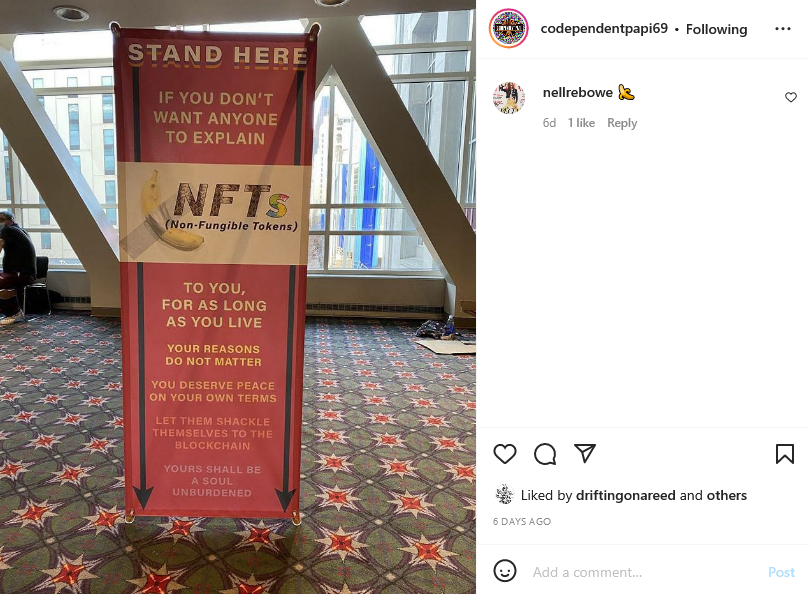
TN [00:01:56]
Yeah. I mean, I think coming off of our last conversation with Stephen and then taking that and comparing it to the video about this situation with NFTs from this, I’m just ever more leery of that than ever as a space for connection or community even. I guess in taking into account some of what Eileen Isagon Skyers is saying in the reading of theirs, I’m thinking of it particularly in terms of trust, where the marketing of everything is so granular and so embedded in so many things and maybe, in Eileen’s terms, “fractionalized” that I just feel like it undermines trust. It undermines trust in the community knowing that, so many folks involved in it are, pushing, pushing their thing or trying to hide something.
🚩 🚩 🚩 🚩 🚩 🚩 🚩 🚩
I am concerned.
Very concerned.
Let’s talk about the elephant in the room.
BURN OUT.
Burn out in the nft community.
I’ve been meaning to share this post pre- NFT NYC and I thought that perhaps seeing people in IRL would change my mind.
— ALΞJANDRO 🍄 (@LuisANavia) November 8, 2021
DB Amorin [00:02:53]
I’m also drawn to this idea of, you know, just that “trustlessness” itself is something that is desirable? And how many of these technologies, no matter how automated you make them, none of them really revolutionize the problems. Which are just the basic greed of people. It doesn’t revolutionize the people problem. And one of the things about fractionalization that I was thinking about as we make things that are more and more granular and financialize every step of the process, that’s one way to describe the economies that are being generated by this. But it also does a great job of describing the sense of communities that are arising from them as well. You know, who are the communities that we are obligated to, or enter into contracts with? And our ideas of power and access, you know, are completely subjective within those communities. These critiques are mainly on a macro level because I think they acknowledge the fact that as we continue to have these fractal views of how we interact with the world these ideas of a panacea technology that will solve the problem for everyone…. It becomes increasingly absurd. The idea that we could even attempt that or achieve that with any sort of tech seems like a bald faced lie on the surface. And it takes a lot of, like you said, marketing to overcome that.
you make them, none of them really revolutionize the problems. Which are just the basic greed of people. It doesn’t revolutionize the people problem. And one of the things about fractionalization that I was thinking about as we make things that are more and more granular and financialize every step of the process, that’s one way to describe the economies that are being generated by this. But it also does a great job of describing the sense of communities that are arising from them as well. You know, who are the communities that we are obligated to, or enter into contracts with? And our ideas of power and access, you know, are completely subjective within those communities. These critiques are mainly on a macro level because I think they acknowledge the fact that as we continue to have these fractal views of how we interact with the world these ideas of a panacea technology that will solve the problem for everyone…. It becomes increasingly absurd. The idea that we could even attempt that or achieve that with any sort of tech seems like a bald faced lie on the surface. And it takes a lot of, like you said, marketing to overcome that.
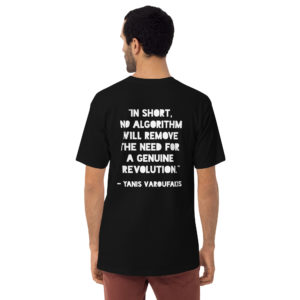 TN [00:04:56]
TN [00:04:56]
Yeah. And I mean, you’re making me think of like a layer of the Yanis Varoufakis – I don’t know if that’s how they pronounce their name – in that article in the sense [that] there may be functionality within these tools that could be useful if we had a society that was structured in a certain way to use them to get those things. But there is nothing inherent about putting a tool that has that potential out there because it’s been used by folks who have a totally different ideology. And so what about the tool re-does that ideology? Well, nothing necessarily. And that’s I feel like that’s a lot of what we’re seeing in the way that the things ultimately get used and instrumentalized.
RP [00:05:41]
Yeah, I’m trying to come up with a response to all of this, but it kind of makes me aware that maybe technology is just… I mean, in a way we can see it’s like a tool for people who are exhausted to, well, not employ accountability in their lives. Right? Or to throw, to be brought into these fantasy worlds where, oh, you can think of life as a game and, you can have these fantasies where maybe you respond. But ultimately what ends up happening is we keep on trying to gamify life, but it’s responding is becoming harder and harder. It’s really hard for a lot of people. A lot of people are brought in… they’re able to consume so that they get dopamine hits, but then ultimately it’s almost as if we’re at this moment where either people are so fed up with these older models and they don’t care whether they respond or not. Or they’re so full of these marketing sugar highs. That you know, any kind of autonomy ultimately feels very painful to integrate into the way that they navigate the spaces.

TN [00:07:28]
Yeah. I mean, I guess that’s one thing I wonder about. How much the models are actually new or what about the models are actually new? In reading Eileen’s article about fractionalization, the whole time, I’m like, well, owning a share of something is not new. Like, what about that is inherently revolutionary?
I gather that a DAO maybe can create a structure whereby that’s facilitated, but I guess maybe geographically? Like then you’re allowed to make easier contact with people in a global sense of doing that? But it’s nothing you couldn’t have done in a more autonomous sense in a smaller local zone in terms of going in together with your friends to try to buy a house somewhere or something. So what are we expecting? Where are we thinking we see newness or where are we getting lost in, as I think you’re saying, Ralph, the sugar high of something to then let that novelty, let that gloss, let that sugariness, absolve us of having to see the layers of it that aren’t new?
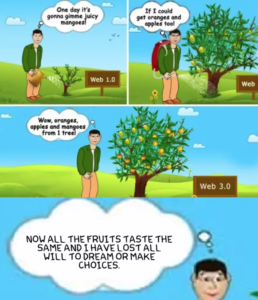
DB [00:08:41]
I think one of the things that I kept coming back to at the end of, in reflection to all of our talks and everything we’re kind of teasing apart, this idea that Web 3.0 is inherently more … well, what is the idea of transparency in Web3 versus Web 2.0? In some ways it feels like almost Web2 is actually a little more transparent because the terms and conditions are so upfront. What you are offering up for yourself and where it goes, you know, for anyone who’s interested in reading them, are right there in the terms of conditions ¹. There’s no fallacy built-in. And there’s not as much smoke and mirror. It’s you know, you’re trading the ease of entry into a platform that like “represents” a portion or a facet of your personality. And in, you know, in exchange for offering your data for sale. That process is already pretty opaque, but I feel at the end, sometimes it might be more transparent than a complete like smoke and mirrors, almost Ponzi scheme of Web3 that promises decentralization but doesn’t tell you that things are de facto centralized because of barriers to entry, which are financial, which are more largely I mean, is largely financial right. You know, one of the things that came up in the First Impressions of Web3 reading was this idea that, you know, the talk about distributed trust is always leading to maps of who runs these servers. But the client side issue is that we don’t have as individuals you know our our mobile device or some of the individuals don’t really have the space to enter into these peer-to-peer networks. It really is just, you know, concentrated to who can own the largest mining farms who can, you know, be the bigger whale, who can get in first and sell to the next fool in the line. And that seems a little more disingenuous. Like the promise of Web3 seems a little more disingenuous than Web2.

TN [00:11:06]
Yeah, I think so. I mean, capital is still going to be capital if that’s the model that we’re choosing to operate it under. And then you’re not going to get away from it without, like the Yanis Varoufakis article [says] there still needs to be an underlying revolution. And to go back to what you were saying in terms of Web 2.0 to be more transparent in a way. I was having this conversation recently with somebody about shopping malls because I do artwork about shopping malls. And we were talking about nostalgia for that. And it’s tricky because I do feel nostalgic for that in the sense of at least those are physical places where we had to gather and see each other and be in physical proximity with each other. You know, if you lived there, or you’re near one or whatever. And although that at the time felt like this horrible like monoculture, right? Like this imposed monoculture and you have to participate in brand culture and that kind of thing. And so when I think of how that metamorphosed into social media and Amazon being collectively what malls were before, it feels bad.

When at first DB you were like, oh, well, at least, you know, they’re transparent in the terms and conditions. I don’t know if they’re transparent. It’s like, you know, long running things where you probably aren’t actually going to read it. And what’s hidden behind that is also that they’re still experimenting on you in ways that wouldn’t be foreseen.
But I think you’re right because the Web 3.0 thing to me, what is it democratizing? It’s like letting everybody be a Mark Zuckerberg in some way. It’s like, okay, not everybody can be this horrible grifter. I mean, when Steven McKeon was talking last time about how it democratizes access for people to own art… I’m like, no, everybody always could have owned art by trading it with their friends or by buying craft or that kind of thing. Where it’s democratizing is financialization. Where it’s democratizing is now everybody is an investment banker and thinking that they’re going to flip a thing, and that’s not the same as appreciating art. But the idea of appreciating art is used as the thing to artwash, effectively, this financialization.
RP [00:13:31]

I think for a lot of people too they think of like these Web 2.0 technologies as essentially monopolies, right? They monopolize a space where people interact and it brings me to Yanis Varoufakis and I think he coined the term techno-feudalism, right? I think what might be alluring for a lot of people in Web 3.0 is that those monopolies don’t exist. But regardless, these people are using our labor or we’re buying into the command capital of these infrastructures. And it to me it almost feels like we’re all peasants here, but at least we get to choose who we’re peasants to, you know, it’s like that. That’s all speculation though. I don’t know if that’s what allures people. It almost seems to me like there’s an evolution from Web 2.0 where people are not even really recognizing monopoly techs in terms of giving away their data or putting something up like putting materials up in these platforms. But in this case and Web 3.0 I think what people are looking for really is a choice. It doesn’t matter if that choice is mediocre or not. But it matters that they’re able to go into the hyperreal of having actual choices. And that to me is very depressing.
DB [00:15:26]
Yeah, for sure. I mean, I think the fact of the matter is we occupy like the lowest rung of an economic system built on scarcity and we don’t have the privilege or the benefit to choose, with ideological purity, the systems that we participate in. So we can either get a job and toil for pennies at the bottom of the system or identify new parallel economies pretty much with the same problems of the previous economy. But they’re so new that they have gaps in them that we can occupy to just get a little more than what we were getting previously. And I mean, maybe that’s the inherent evil of capitalism. It’s disguising its predatory mechanisms as opportunities and inflating the promise of success beyond rationality.
You were mentioning something, Ralph, earlier, right before we started recording, but your thoughts on Axie Infinity, which is one of these platforms that allow this to happen, right? And it’s seen within the larger tech realm – and I would imagine within some financial realms. I was reading back through some of the survey questions and there was one person who responded with a lot of positivity towards how tech makes financial systems more accessible to the unbanked. And you know, these are some of the aspects of this tech or Web 3.0 in general, that people tout: new access to these realms. But anyway, I’m just curious what your thoughts about how you mentioned they were triggering…

RP [00:17:17]
They’re really triggering. The economic realities is that, yes, there are these things that people are monetizing and they’re monetizing them in huge ways. So much so that the Philippine government is now taxing your income in Axie Infinity. And there are so many success stories about it that you read online but I don’t know what that experience is, but I can project onto it based on my experience of living in the Philippines. And given the cost of living there, yeah I can imagine that it’s useful for people and it helps people, especially during the pandemic, as the Philippines is still within this authoritative regime. But comparatively I’m also thinking about my position as living in the U.S. It does feel like, oh, a lot of these positive things that we’re talking about still not significant its still not a revolution. The systems of power continue to be imbalanced and we’re led to believe that it’s like “oh, like there’s this wonderful thing that’s happening.”
TN [00:18:42]
It feels like yeah, lightning can strike. You can be in the right place at the right time to do something like that, but can it scale? Which was another thing in the Yanis Varoufakis that makes sense to me too. And in that context, I think he was talking about young people in Kazakhstan and maybe the other country was China, but doing similar things, playing games. And it makes me think about Twitch streaming. Friends that I’ve had that love playing video games, and people want to monetize being a Twitch streamer, but one, that’s a very specific skill set. And just because Ninja or whatever other Twitch streamers can make bank getting sponsored and doing that…It’s not probably going to happen for most people unless you can really find your niche. But yeah, does it scale and does that mean it’s revolutionary? Does then it just become a draw? You become an attractive nuisance, you become an influencer that’s pulling more people in to try do this thing that’s such a long shot anyway. Which is back to that “wage becoming wager” where people are more inclined to gamble with their careers, their lives, that sort of thing, because the other options feel limited and in a big way. As negative as I am about the NFTs, I feel more and more sympathy, empathy to that even maybe inclination to work on that because I’m at a peak of my own disenchantment with institutions right now, working in a legacy educational institution. Maybe we would call it that. Where you just see how it doesn’t work and how it lets people down. So, you know, what is another way we can do that?
@giselle.ugarte Should you NICHE down on your content? Only if you’re a product. #niche #tiktoktips #creator #tiktok101 #marketing
RP [00:20:30]
What I’m hoping is all of the catastrophes of these experiments actually lead to a revolution. There’s a part of me that feels like accelerationism. I’m all the way. Sure, let’s drive this shit to the ground.
Because how else are we going to get there? Thinking about the YouTube video too, and all of the criticisms of these technologies it does make me feel like on the one hand, we do need protections for people. And chances are, there are probably a lot of projects that promise protections for people in ways that the old government or the current government. (laughs) I’m calling it old, but it’s actually current. The current government is not able to provide. I mean, right now it’s the big conversation around protection for people around NFTs has been centered around taxing people that actually make money on NFTs. As far as the details of that protection go it’s very limited because governments just can’t keep up with the pace of these technologies.
So really it does feel like it would be up to the people that are participating in it to really change things. And I’m hoping that after so many rug pulls, and so many people going in debt, that would spur on a different model or at least wake people up to the reality that’s like, “you’re being duped.” And so if you want to continue participating in this space, then you need to educate yourself.
But I don’t know how that relates to a revolutionary gesture. Because it does feel like the way that I’m seeing things is in this game. And in a way, they don’t care whether they’re suicide bombing or not on themselves to the ground…I’ve lost my train of thought. But it does feel like maybe what ends up happening, and I don’t know, this is so dark, but I do feel like revolutions oftentimes have casualties, right? And maybe, the way what we’re seeing right now, people are just losing themselves as far as their financial assets are concerned.
…I don’t know. I’m losing my train of thought.
TB [00:23:35]
I think that makes sense. When I think about the problems of accelerationism, that’s what I think of. A lot of people have to get hurt and suffer extremely before things remake themselves. So what does that mean and how do we feel into that future? Is that really the future that we want?
When you’re talking about people losing their shirts and getting rugged and whatnot, and educating themselves, I just I come back to, in spite of all of this, education that we’ve done among each other and all of these readings and all of that education that I do myself and reading and trying to understand these things, I come back to this question. I get lost. I don’t understand the use value of so many of these things.
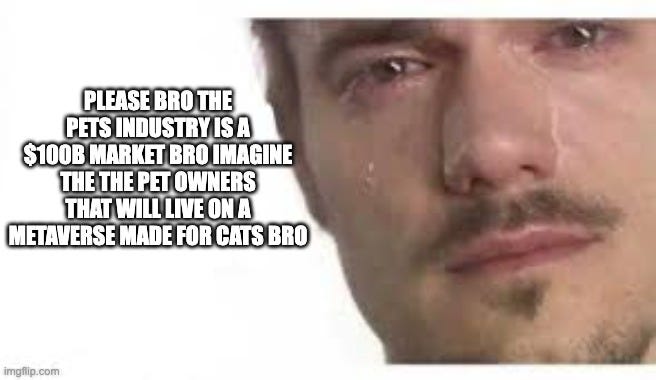

Self education, but what is the use of this? My head is still not wrapped around the Axie Infinity where they’re making money from people playing a game, but there’s nothing productive that contributes to people…? There’s no food that gets made at the end of the day. There’s no house that gets made at the end of the day. We have just abstracted values so extremely. And so what does it mean that people should educate themselves around these increasingly arcane things that are divorced from use value? All while that pressure of the end result of the accelerationism, which I think of as being crash, right? I guess when I think of accelerationism, I think of something like that earlier, the way it comes back to, what’s his name, Lyotard and people that talk about the “politics of the pyre” and burning it down. Okay, well if you burn it down there’s going to be a period where you are rebuilding from nothing or substantially less, rote survival stuff. So what is all that skill building get you? And I realize that’s part of the gospel that we’ve talked about in past episodes of the Tech Bro Utopia. This thing is like “the blockchain is indelible, the blockchain is infinite.” You know, just listening to another New Models podcast, not the one that is in our thing, but they kept talking about the infinitude of the blockchain. And…. I don’t know. Seems dubious in a whole collapse situation. But that’s part of the fallacy.
RP [00:25:58]
There is a part in the Yanis Varoufakis reading where he talks about China and how China is now creating their own centralized crypto in a way, and how that actually ends up working because at least within the model of the Chinese government, it provides them with a certain amount of control as opposed to just having a free market way of going about deploying cryptocurrency projects. And then that reminded me of the conversation that we had with Steven where I asked him, “what does an educational institutional model look like within a DAO?” And thinking about education, it’s like this technology is not fully fleshed out yet, but I started thinking about the hairy bureaucracies of these older institutions. And how I do want a voice. If I were a student, I would want to have a voice in my education. But the truth is these institutions are also really big, way too big to provide choices for people to have their voices heard and actually enacted within the way that the institutions are operated. And so there’s a part of me that’s like, okay, this is probably not where this technology is going, but maybe at some point in the future there is a way to use these technologies so at least people feel seen and maybe it’s not a huge monumental way of being able to hear people, but I just want to vote, you know? But the way that vote needs to happen has to be controlled and for equity in some way. And I think, where things get lost in these systems in that they all turn into these oligarchies.

TN [00:28:20]
Right. Can I ask a question maybe to direct this back in to us a little bit? We’ve done this research about AR and metaverses and blockchains – I can’t even remember all the fucking things that we’ve read about at this point. But now, having done this, how do we see it affecting our practices either as artists, as educators, as people in a community, and organizing if that’s stuff we’re doing? Where from here? How do we see all this giant knowledge nugget impacting us all?
DB [00:29:06]

I’ll go first. I think that I entered into, just the general concept of learning about Web 3.0 technologies on one hand as a way to have more material to tease apart within my own practice as a conceptual tool and to talk about the kind of concepts that I already addressed in my work and have a different platform by which to do that. Which may not have changed? I still think it’s a little ripe for that and it can be interesting. But I’m more and more disillusioned by another ulterior motive, perhaps, was just to find some way to be more financially solvent. And at least given the current platforms that exist and the current methods that exist and the general environment that most of these
conversations around NFTs, the uses of NFTs ,and whatever it is, already occur. I think there is a vacuum – I’m still holding on to a little sliver of hope that I think that there is a vacuum that can be filled because one of the things that keeps coming up in terms of the value of these systems is the communities that arise around them and the cultures that are built from them. I think the Problem with NFTs video did a great job of really looking at what is a vacuum of cultural importance… It’s like the most superficial… like it’s just – it’s gross for lack of a better term.

And I think that there is some way to, maybe on a very small scale, in a very experimental way. And I hate to say it, it probably will occupy something like a social practice project or something that is completely contained and may not have the kind of larger cultural impact or any scalability. But I think that there are ways to experiment with these technologies. Kind of like you were mentioning, Ralph, maybe a DAO is an answer for a small scale educational model that is more equitable and more beneficial to all participants. But we can’t ignore the barriers to this. There’s this massive barrier to enter into any of this, even an experimental way, which is the actual cost. The financial cost to start up. And the literacy to even build these things from the ground up. Because to start a DAO you need a programmer and they need to be accountable in ways that are really tangible because you’re dealing with people’s money and mechanisms that could spiral out of control really quickly or be completely insecure. That’s where I’m thinking about, where I am now. My eyes are a little less starry. I feel like there’s a real trepidatious kind of maneuvering, even more so than I already was…which was pretty high.
RP [00:32:46]
Yeah, I would say I feel similar to DB, but for me I’m just interested – I guess it’s like I’m interested because it seems like all these technologies are in their early stages. And so because they’re in their early stages, I imagine there’s a lot of friction to it, right? Like there’s a lot of barriers. There’s a lot of bad actors in the space. And it feels kind of like really wild to even think about, ”oh, yeah, like I’m going to focus on this.” Like, “fuck the old world.” You know? But the way that I think about it now. It’s like, oh, okay. So, given that YouTube video, which was like a critique on NFTs and crypto, to me, the way that I’m seeing it is like… before I felt really enchanted by it. Right? And obviously, after seeing that video, yeah, I feel less enchanted by it. But, actually, no, I’m not less enchanted by it. I’m still curious about it, mainly because maybe it does not get us out of these older systems, but at least it adds to accessibility that maybe we haven’t had before. And so maybe as opposed to trying to dive in so quickly so that you don’t lose out on opportunity, maybe the way to access it or to participate in it is to be slow about it and to be thoughtful about it and look for resources and communities to actually feel like something that … well, feel like communities and opportunities that you would actually want to participate in.
@ken Reply to @brokkake Big Tech are cutthroat monopolies hiding behind 🌈s #monopoly #hightech #technocrat #dystopia
TN [00:34:53]
Can I ask a question into that, Ralph? Like, what is the accessibility that you feel like it adds that we haven’t had before, is what I heard you say?
RP [00:35:01]
Um, well, thinking about royalties, for example, is one. But also being able to sort of generate material … but I mean, I’m thinking about this as an imagemaker, right? And the fact that it’s like, oh, I can deploy a JPEG or a digital artwork and people can buy it and be able to appreciate it in ways that might not have been been possible except if I posted it on my website or DeviantArt or something, the fact that it’s like, oh yeah, I can have a following or I can have people buy this and I don’t have to provide a 50% cut to a gallery or something. Or compromise a lot. Like I had a friend recently talk about a gallerist telling him to sleep with another gallerist, … So that he’s able to get a show in that gallery. And I was just like, “whoa, yeah. Like that’s real.” Those things do happen in this space. It’s still really toxic and it’s like, I mean, other than that, it’s like, you know, there’s museums, alternative spaces, nonprofits that you can exhibit in, but it’s like … it still does not solve the issue. It’s like, you need to live. And you want to be able to feel like you’re living well off of the things that you’re making.
Hii ..actual artists from Kazakhstan here.. finally after practicing art for decades and spending half of our lives in art schools abroad and lots of effort and finance and going through visas and applications we can connect with global community and sustain our lives from home✌️
— MABLAB (@MABLABART) February 4, 2022
TN [00:36:39]
Yeah, I hear that. And, you know, I guess I wonder about, like, other sort of parallel models that I think of as being like on the Web 2.5 or something in terms of like patronage models through Patreon or something like that. Where it’s like, yeah, you can be compensated in a distributed way for your production. I don’t think NFTs have a monopoly on that. But yeah. I mean, I hear you, I hear like wanting that and in a way like I feel like, “oh, maybe in a way I feel more interested in it than I have before,” but I don’t..I don’t quite know to what end yet, I haven’t wrapped my head around that. Not as an image maker, but as maybe I don’t know, I don’t know. Something else. But like, you know, when I think of my relationship with the readings and the material that we’ve learned… I was really… I was shaken probably most by something, DB, that you shared over Instagram. Partly. I think maybe it came from the conversation with Emily. But being shaken with the GPT-3 stuff and then the NVidia Canvas stuff that you shared. I’m just like that’s exactly like the kind of thing that I’ve been afraid of. I think I voiced that in questions. I don’t remember how much it came up in that. But, I think the machines are just out-arting us. I remember when Google Deep Dream first came out and I was just like, This is better than most paintings that I see happening. And now it’s like, Oh, that Nvidia Canvas thing. It’s like, if you like realism, get ready. And then it’s only a hop, skip and a jump until some really smart person hacks it to do really beautiful, weird things. So then what? And you know, in a way, I’m like, “Oh, I want to get in on that. I want to learn more about AI stuff.” And then the other way, it makes me even more despondent where it’s like, I guess I just want to sit back and like, read poetry or something while the world falls apart because the machines have got this. But I have no idea on what time scheme like … is that ten years from now? Or is that 50 years from now? And I’ll just be like trying to figure myself out, you know, or not doing anything while I don’t know, the normal economy continues on before, like this machine dystopia / utopia takes over. I don’t know.

RP [00:39:02]
But it’s like you have that choice, right? Like you can fluidly go from being this one person to this other person. And I think for me, that’s the thing that’s alluring. Where it’s like, oh, if I choose to participate in this one thing, I can. And if I choose to participate in this newer model, I can, but I can also do neither. And just, like, read poetry and the world will continue on as is. The thing that I think maybe.. I mean, I feel I share that sentiment with you where it’s like, oh yeah. I just want to lay in bed and like daydream. And not have to sort of like, you know… I want to have a choice of not participating if I don’t want to.
Because in early months of Tezos, independent artists created the #CleanNFT culture and an avant-garde art scene against the toxic generative PFP ecosystem of inaccesible ETH. I can show you plenty of artists, here you can discover via my collection: https://t.co/akCKmsFCI3
— Burka Bayram (@burkabayramart) March 9, 2022
But what was I going to say? That I’m losing my thoughts really easily, but… Oh! I guess one thing that I wanted to point out in that that YouTube video is what was covered a lot are these like collection models for NFTs where they’re in the thousands or like in the hundreds or whatever. But there are also communities on I think Stephen talked about this before on Tezos, where there are artists that are just, I mean, they’re able to get around the barriers that maybe a platform like Foundation has or it’s like you have to have a pass in order to buy in or participate. But on Tezos, you can just participate as an artist. And there is a big arts community. All to say that, I think that there needs to be a distinction between the economy of artists versus the economy of these collections. And I feel like, at least in the economy of these artists that are participating in NFTS, it feels like the people that are there are mainly collecting because they like the work as opposed to collecting because they want they want to financially benefit from it. But and so I feel more attracted to that model now, as I’m learning more about the space because it’s like, oh, you’re just putting stuff up.
someone come sweep my floor. support indie folk.#NFTs #NFT #NFTCommunity #opensea #NFTdrop https://t.co/NQRX67oOg5
— K (@ABQWNK) February 18, 2022
TN [00:41:24]
But then I mean, in that model, then you lose the notion of royalties as being valuable, right? Because then theoretically there’s no secondary sales that occur from people investing in it. Or am I misunderstanding the model?
RP [00:41:37]
I think there’s still royalties. I mean, in the video it points out that it’s like, oh yeah, you can just move your NFT into another platform. Because it’s like, no, those royalties are specific to the platforms that you’ve minted them in or where you deploy your NFT or whatever. And it’s easy to get rid of those royalties just by moving it to a different marketplace.
Artists don't have marketing budget, they don't promise to make you rich overnight via WL, they don't buy followers and stats. Unlike most projects, artists spent years building their brands, and they drive value to their work simply by pursuing their passion: art is the utility.
— Dangiuz (@dangiuz) February 18, 2022
But the idea like, maybe, the sucker in me or something… but I’m imagining that if you’re collecting an artist’s work because you want to take ownership of it because you appreciate it and you want to as part of your collection, that you’re not really, you know…to go through the process of moving an NFT to a different marketplace it seems like such a pain in the ass just so you don’t have to give royalties away.
TN [00:42:37]
You know, for sure. I guess I’m just saying that if part of the access that NFTs give that I was hearing you describe earlier is the possibility for a second – I’m maybe I’m conflating royalties with secondary sales? Yeah. That’s my understanding of it. That if a person is doing that, they’re just buying your thing, you know, almost like buying you a coffee or whatever. You’re not going to ever see secondary sales royalties out of it.
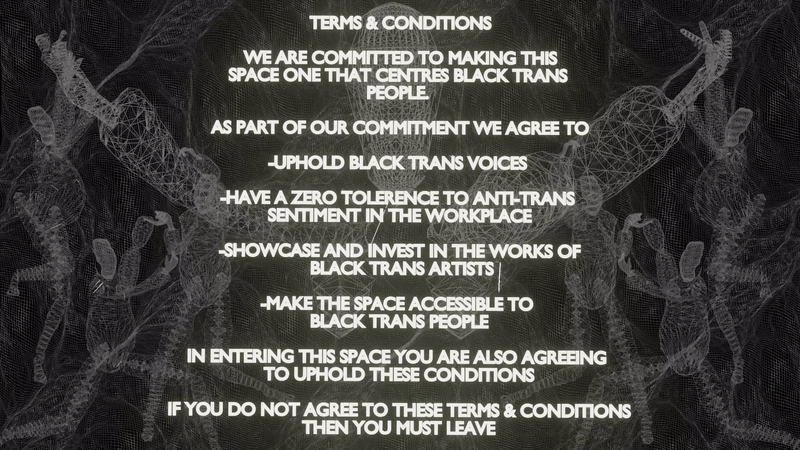
RP [00:43:04]
Maybe you can. Like, you know, it’s like, maybe some person really likes it and wants to really own this thing. But I personally am not a(n NFT) collector, right? So I don’t know what goes on collectors mind when they buy things. And I think the major pressure that artists in this space is them, then being forced into a field where they have to make themselves more visible as people, where you have to do a lot of marketing for yourself.
But it’s like, you know, the way that I’m imagining it, there are also people that want to collect your objects and don’t necessarily want to interact with you. You don’t have to be that person that… Like, I think we’re in this space where it’s so new that you can experiment with it and try to figure out what works and what doesn’t. And regardless, it’s like at least you have options.
DB [00:44:07]
I think that maybe the largest difference between these two camps is this idea of hype, which propels the second you know, the latter of these two, which is like these profile based, like 10,000 NFT collections that essentially exist not based on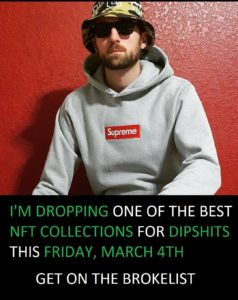 any kind of aesthetic or artistic value or anything like that. It’s just to create digital objects by which to serve as collector items that can then be flipped back and forth at an exponential pace. Right? And continue to gain value and then essentially one day either… I mean, it, it pretty much always implodes unless it reaches a peak or a plateau that then people just hold. And, you know, because at that point it reached like the Sotheby’s level or the-NBA-star-is-owning-them kind of level. But I think what you’re describing Ralph…Also, to go back: I don’t think there’s anything separate in terms of the mechanism. But like both of these could, you know, receive secondary sales. But the probability of the second receiving secondary sales are lower, but not zero. You know, and I mean, maybe that’s what gives me like …. not “hope” but seeing the possible use case for small collectives of you know, I don’t know indie musicians, let’s just say, you know, an indie musician or something to create like a small DAO that has no intention of scaling up or becoming the next Spotify or… I’ll put it into the website, but I was trying to find an example I just came across – it’s like a group of artists, experimental musicians, created their own sort of Bandcamp platform for their own music, and they all share in the profit. So they’re, you know, their point isn’t to garner the kind of hype that would make them all overnight millionaires. But it is a way to provide a platform or, you know, an opportunity for support by fans, by other artists who want to support this group of musicians by interacting with a platform that they built themselves. And I don’t know if it exists on the blockchain. It might just be literally like a PayPal type situation where we could see that mechanism built on the blockchain and how it could benefit like a small group and then the culture that comes from that.
any kind of aesthetic or artistic value or anything like that. It’s just to create digital objects by which to serve as collector items that can then be flipped back and forth at an exponential pace. Right? And continue to gain value and then essentially one day either… I mean, it, it pretty much always implodes unless it reaches a peak or a plateau that then people just hold. And, you know, because at that point it reached like the Sotheby’s level or the-NBA-star-is-owning-them kind of level. But I think what you’re describing Ralph…Also, to go back: I don’t think there’s anything separate in terms of the mechanism. But like both of these could, you know, receive secondary sales. But the probability of the second receiving secondary sales are lower, but not zero. You know, and I mean, maybe that’s what gives me like …. not “hope” but seeing the possible use case for small collectives of you know, I don’t know indie musicians, let’s just say, you know, an indie musician or something to create like a small DAO that has no intention of scaling up or becoming the next Spotify or… I’ll put it into the website, but I was trying to find an example I just came across – it’s like a group of artists, experimental musicians, created their own sort of Bandcamp platform for their own music, and they all share in the profit. So they’re, you know, their point isn’t to garner the kind of hype that would make them all overnight millionaires. But it is a way to provide a platform or, you know, an opportunity for support by fans, by other artists who want to support this group of musicians by interacting with a platform that they built themselves. And I don’t know if it exists on the blockchain. It might just be literally like a PayPal type situation where we could see that mechanism built on the blockchain and how it could benefit like a small group and then the culture that comes from that.

TN [00:47:02]
Yeah. And I mean, I guess that’s my question. Back to DB, when you were talking about like the social practice DAO blockchain project where I’m initially like, “but why does it need to be a blockchain project?” Like, to me, what seems like the what seems like the use case of DAOs and the accessibility, the level of selling NFTs in this way is the degree to which it can scale. It’s the degree to which you can open up these things. So if the point is small and agile, do you need to engage this like arcane technological level that also comes with its own set of security concerns, which is something that I talked about in the YouTube video a lot as well. For the sake of what? You know, I guess, and I don’t know because I don’t do these things – I ran a Patreon once and I never felt like the fees they wanted to charge were exorbitant. And, you know, like I don’t take PayPal in a commercial context, so I’m not… maybe those fees are exorbitant? And so maybe you’re building your own thing on this totally decentralized thing. You’re getting around it, but you’re still going to pay gas fees. I’m leery of like, what is the use case for a small person versus someone who is really trying to do a big grip? In this case, I completely see the use case.
DB [00:48:19]
One of the things that I’ve read about in terms of the the allure of just already having it, you know, having any of your work on it, on the blockchain at all is that – and you know, and this isn’t of interest to every artist, but — particularly digital artists just making their work more valuable in the eyes of institutions who maybe, you know, beforehand there’s that extra barrier of like, okay, what are these people about? Where are, you know, what is their work? Where does it exist? It’s intangible. It’s nonphysical. How do we come up with contracts that absorb that? This way it provides a very meaningful, or not meaningful, but a very easy way [for institutions to interact with work], given you know, you have the literacy to understand it. But as Web3 is becoming more and more of a household concept, you know, institutions can interact with an NFT in a way that, you know, maybe just venturing out and trying to strike up a contract with a small collective to acquire work for an institution might be less viable?
Guys, are you sure it's a good idea to bring up proof of ownership? pic.twitter.com/ZxtSvOUuV0
— Josh Glendinning (@joshglendinning) February 5, 2022
RP [00:49:30]
There’s also the notion of transparency, right? So it’s like you get to.. I think now it’s like I’m trying to compare a model like Patreon. What something like OpenSea, or any NFT digital type of marketplace. Right? And I think the way that the user experience is structured is so different and that it’s like oftentimes you see NFTs is made by a particular artist next to works by other artists. And so the marketplace feels much more vast and accessible. Whereas, you know, I’ve looked at Patreon before and it always feels like, oh, it’s centered on this one thing. Like oftentimes I don’t get to see another person’s project. If I’m looking on Patreon at someone’s project, right. There is a way in which the UX is structured. So it creates an economy where exchange is promoted. And so I think that there’s definitely an allure there for a lot of artists. Oh, like maybe I’m a small artist, but there is an opportunity for my work to be seen next to this other person’s work. And so this feels like it provides more access for people to see my work and consume my work. But that’s like, you know, that doesn’t really get us around I mean… it’s like I’m trying to loop this conversation back to the notion of revolution. Nothing about this stuff is revolutionary, right? Like, it brings us back to art being tied to capital. And so for me, the next question is like, oh, we all have to live but it’s like we also have to contend with the fact that the world is burning down. So as artists, like, what’s our role in that?
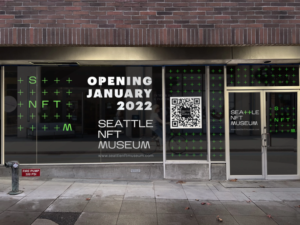
DB [00:51:46]
Right. I was going to say that maybe one of the best things about Web3 is that it just offers, like, a funhouse mirror version of existing terrible things to contend with. So we have more to talk about and more ways to try to figure out how to navigate both sides of this awful situation that we find ourselves in with almost no power?
RP [00:52:19]
Yikes.
I think we’re almost out of time, but it’s like I’m trying to figure out how to like end with some optimism.
Hey, having a conversation about this stuff got us talking to one another deeply about these issues and like, you know. I really enjoyed wrapping my head around this stuff with you all. But other than that, like, I mean, one thing that I can say is like maybe we can think about these things not necessarily as like being good or bad, but really kind of like tools that could eventually like lead to something good similar to like the way that Facebook was used for like the Arab Spring or something. But that’s all hypothetical. Like that would be for people to like do that.
TN [00:53:18]
I think I guess… I’m just always so leary.
I don’t know. I feel so bad because like, everything I’m hearing, I’m like, *cringe emoji* I don’t think that’s the case. Um, you know, I just think it’s like the idea of technological neutrality. It’s what you do with it. I think these things are, like, baked into it. Especially when, like, when what we’re talking about and like, you know, Ralph, when you’re describing like, the, I don’t know, OpenSea or whatever market place, it’s like, it sounds like a slot machine. It’s like, oh, yeah, maybe my art could get featured along with this thing because it has, like, a more aggressive, like, algorithm to be given that chance of putting your thing next to Beeple’s thing or whatever yeah. And so it’s like, you know, to what extent are you incentivized in like, getting your head right and getting your politics right when you’re lost in this casino.
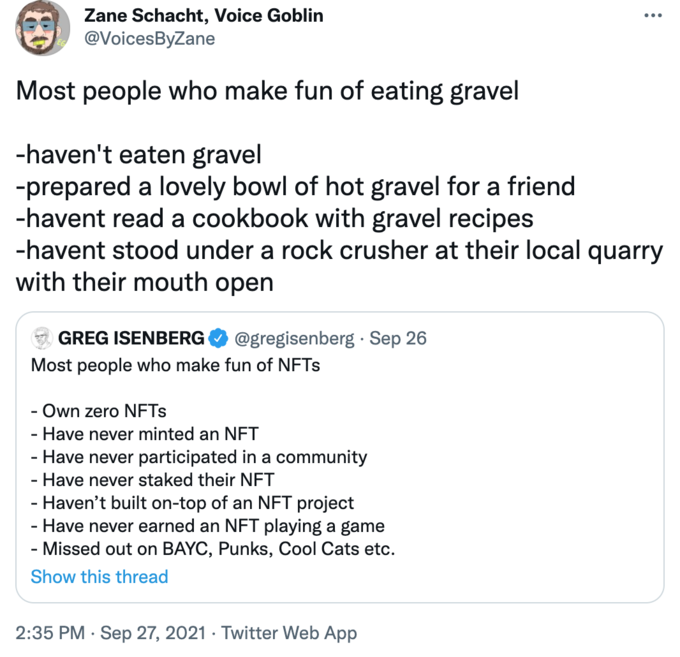
In a way, as much as I like to recognize that NFTs are fucked up, I’m almost more like, “oh, maybe I should try to make an NFT..” because I think I can I understand how the game works. And now I’m like, oh, man, you know, a trans woman and her partner in Georgia made these horrible duck NFTs and now their duck farm is funded for tens of thousands of dollars.
I want a duck farm. And I understand how to wash an art project and, you know, make a cutesy narrative about how this works. But that’s not incentivizing me to get my politics straight and my head and heart in the right place. It’s just understanding capitalism better. Which I guess I got that out of it?

RP [00:54:55]
It really is. It’s really hard to think about a revolution and when you’re in a casino and everyone’s smoking and you’re inhaling secondhand smoke, essentially. I guess for me, it brings me back to our first conversation and talking about oh, like, yeah, we need to be aware of the injustices of these things. But at the same time, these platforms are like the things that, like Zoom, for example, like any technologies kind of bring(s) us together, right? So for me, the bigger question, the really big question that I’ve been thinking about throughout this time as we’re having these conversations is, oh, on a pattern of human behavior perspective, how do you get people to go outside of the casino once in a while? Because I think it requires a conversation that involves everybody. You can’t you know… it’s about onboarding. and it’s about getting people at the same place!
TN [00:56:09]
It’s about a good onboarding procedure for the veal before they go in the crate so that you maybe get them out. I don’t know. I’m sitting with something DB you said a minute ago about Web3 giving us more examples. And like, I have this kind of conceptualization of tech and culture that is resultant from tech in the context of acceleration being like a waveform and like we’re getting a more and more high frequency waveform. And I guess the advantage of a more high frequency way is you have more rapid cycles to be like, “how did this part of the wave work?” You know? And when I think about that in the context of, you know, what’s mostly my interest in terms of games, game spaces, fantasy, virtualized worlds. These are simulations. Let’s do a simulation. How did this simulation work? What parameters did we put in and what kind of world was resultant from that? And so with these things more existent, I mean, we can run these simulations on capital in this way. I’m not saying make video games about capital, but you understand what I’m saying.
Like, oh, every failed DAO or every rug-pulled thing is this like, oh, here’s one simulation of capital that we did and what went wrong. And maybe we can like rapidly iterate and learn from there. Maybe? I could be into that.
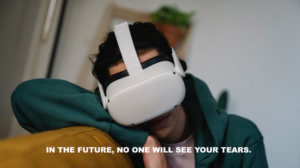
RP [00:57:32]
That’s what I’m hoping.
DB [00:57:36]
Well, we did it. Tabi had a hopeful conclusion for one of these episodes.
TN [00:57:45]
It’s like that Christmas movie. I do have to stay alive. Don’t jump off the bridge.
RP [00:57:54]
One thing that I would say, given that we’re still in the pandemic, the fact that you can make your work accessible to people through these marketplaces… maybe are like having these options as we’re trying to be responsible citizens and, like, not getting people sick…?
Ok let’s stop. Yeah this is a good place to stop.
Featured Readings:
Line Goes Up: The Problem with NFTs
Dan Olson
Folding Ideas (YouTube Channel)
Jan. 21 2022
https://www.youtube.com/watch?v=YQ_xWvX1n9g
Yanis Varoufakis on Crypto, the Left, and Techno-Feudalism
DiEM25 Communications
Jan. 27 2022
https://diem25.org/yanis-varoufakis-crypto-the-left-and-techno-feudalism/
My first impressions of web3
Moxie Marlinspike
Self-Published, moxie.org
Jan. 07 2022
https://moxie.org/2022/01/07/web3-first-impressions.html
Fractionalized Everything
Eileen Isagon Skyers
FWB WIP
Sept. 28 2021
https://www.fwb.help/wip/fractionalized-everything
¹ Providing clarification to my extremely glib thought about the transparency of Web2, which is to say that at this point we largely understand that if a service is free, then the user is the product. We have seen direct, catastrophic results of these policies that we accepted and agreed to in exchange for convenience / access / entertainment / and more fully grasp the magnitude of corporate data ownership. Web3 purports to undermine and revolutionize these existing structures, and give us agency in the management of our own data, but obfuscates the barriers as well as the invisible hierarchies inherent in a system that requires a certain amount of capital or digital literacy to participate. We are in the “onboarding” era of Web3, where the consequences of our actions are just as unforeseeable as they were in 2007 during the mass migration to Facebook, iPhone, et all. – DB